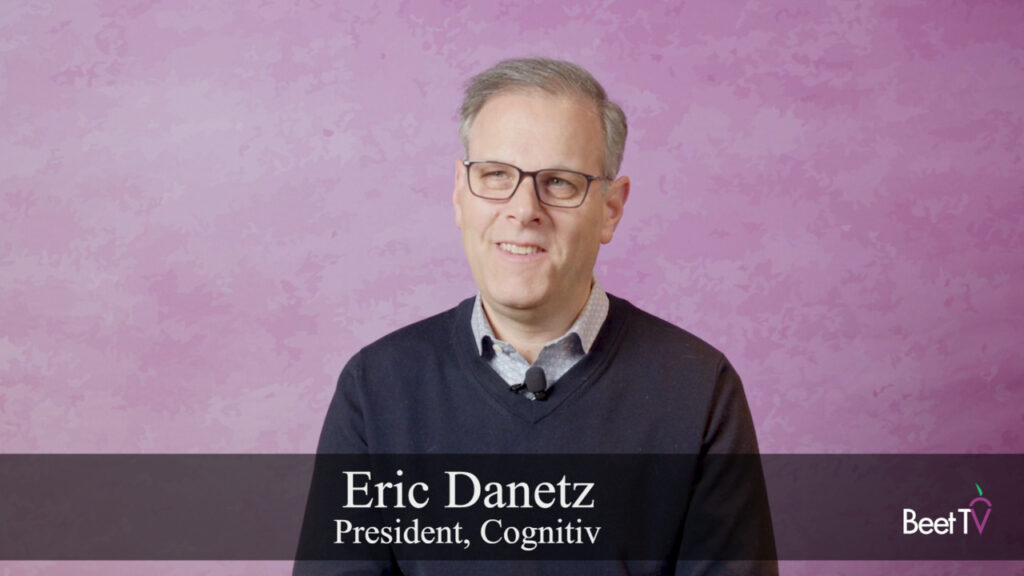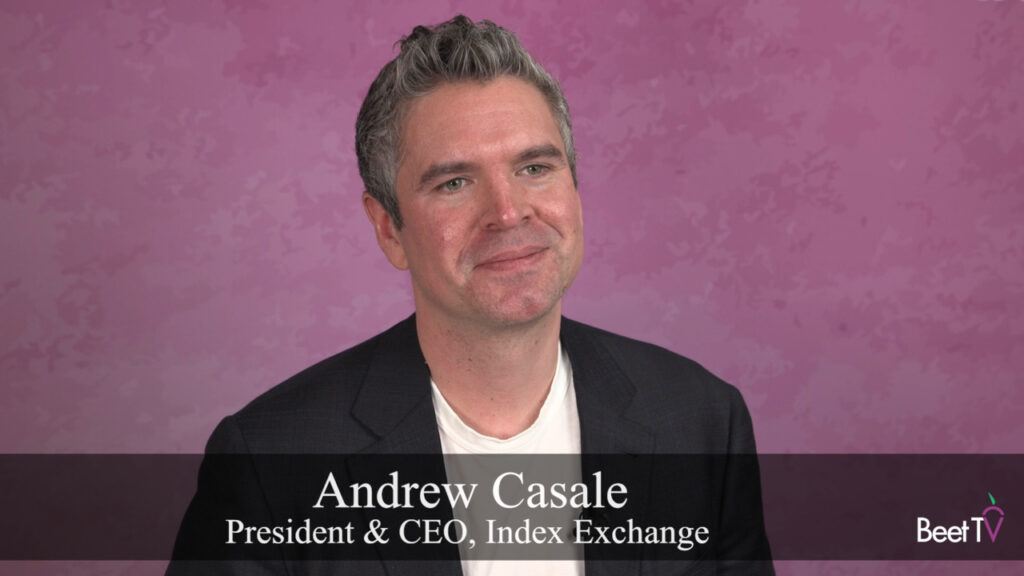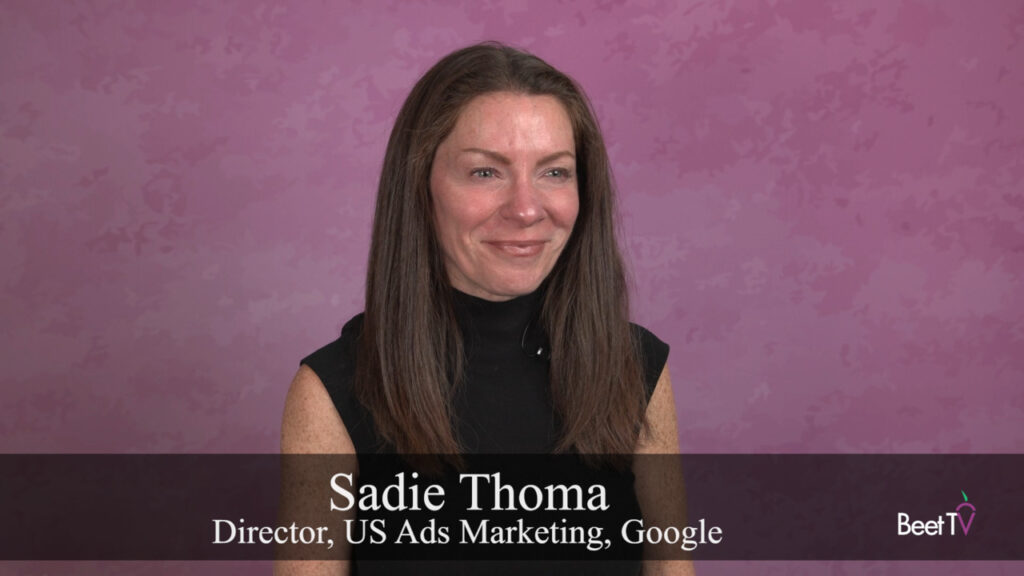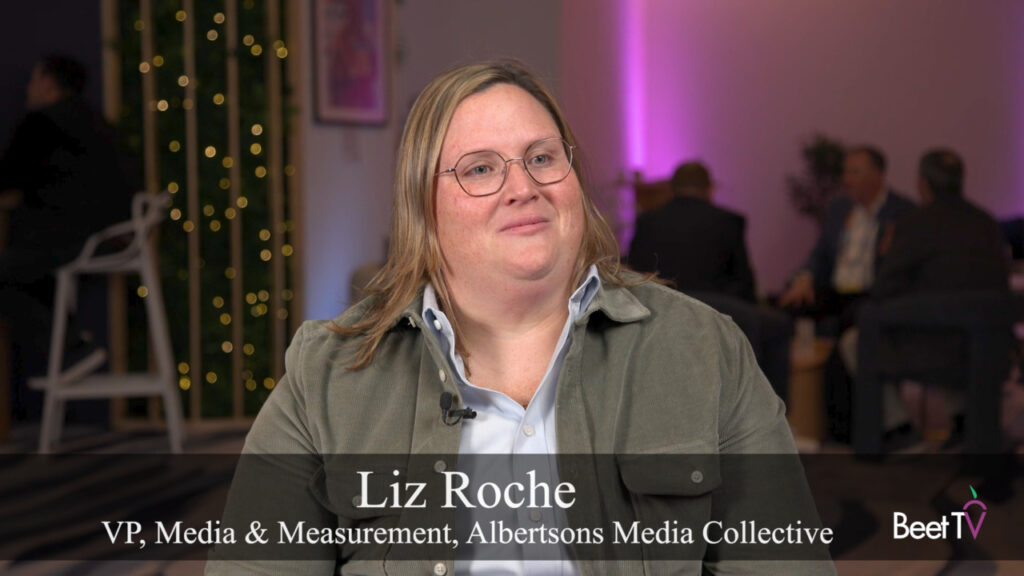Apple may have delayed a big change to the way advertisers can get user data from iOS devices – but the change will still be profound for advertisers.
More than that, however, the change could have a destructive effect on sections of the overall economy, right when many businesses are suffering from the effects of COVID-19.
That is the assessment of a seasoned digital media deal-maker and trends-watcher.
In this video interview with Beet.TV, LUMA Partners CEO Terence Kawaja gave his assessment of Apple’s planned change to IDFA (Identity For Advertisers), which will be made opt-in only on the user end.
Acquisition cratering
“I think there are so many losers with such a significant magnitude that this notion, this initiative, by Apple is going to cause so much destruction to people selling goods and services,” Kawaja says.
“Ten years ago, the app market, the digitally delivered goods and services market, was so small as a percentage of the economy and the ecosystem.
“But fast forward, today, so much of our lives are derived through our phones, through our apps, such that if this craters the ability for customer acquisition, for not just games, but all facets of the economy, which are driven through apps, including e-commerce, this is going to have a devastating economic effect.
“Presumably that message got through to Apple because they need to really rethink this.”
Substantial hit
IDFA helps advertisers collect and unify user data from different apps.
Apple had planned to turn it off by default from iOS 14 this month. Now it says it will delay the change until early 2021.
“Everyone deriving their revenues from advertising sources today largely is doing so on the basis of targeted advertising,” Kawaja says.
“So I think you’re going to see a substantial hit across the board. There are many, many losers and the impact is significant so this is why Apple needs to rethink this.
Changing too fast
Kawaja says Apple had not worked consensually enough with industry partners on the change, which it says it was making with consumer data privacy in mind.
“Google did the benefit for the industry of giving a two year pre-announcement such that people could work on replacement targeting identifiers,” Kawaja says.
“With IDFA, for Apple, the pushback from developers large and small … the messaging was this was happening too fast.”
Context rising
He says, just like happened with the ongoing deprecation of third-party cookies, the reduction in usefulness of IDFA given diminishing user opt-ins may spur the growth in so-called “contextual” ad targeting.
That is ad targeting which uses adjacencies against particular content types, rather than targeting users necessarily.
Despite ad-tech deals shutting during early in the pandemic, Kawaja says conversations resumed, with several under way and a busy Q4 likely.
“The deal market is back,” he says. “That’s an extremely good and healthy sign for the markets. Not sure what 2021 will bring, but we’re positive about Q4.”
This video is from a Beet.TV series title Advertising in a Time of Privacy-Centricity presented by AppsFlyer. For more videos from the series, please visit this page.




































